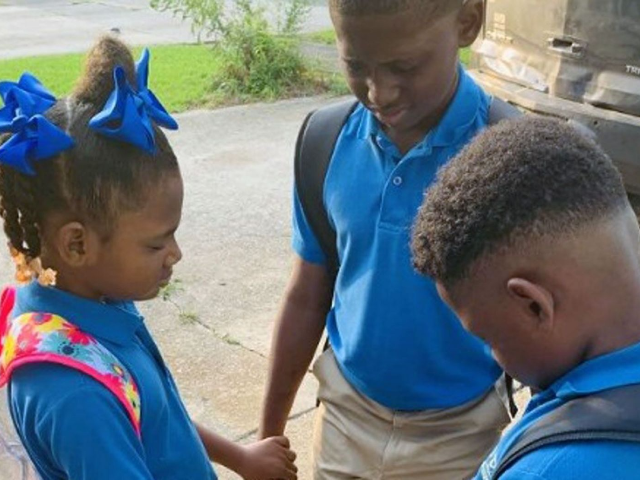Only 35 percent of American parents say it is “extremely or very important” to them that their children have similar religious beliefs to their own, a new Pew Research Center survey found.
The report found that fewer than half of 3,757 U.S. adult parents with children under the age of 18 “place a lot of importance on their children sharing their religious and political beliefs.” The survey was conducted between Sept. 20 and Oct. 2, 2022.
Roughly a third (35%) of U.S. parents say it is extremely or very important to them that their children have similar religious beliefs to their own https://t.co/Gl2y1ziMcS pic.twitter.com/6chatSgRlw
— Pew Research Religion (@PewReligion) January 24, 2023
White evangelical Protestant parents (70 percent) are more likely than white non-evangelical Protestants and black Protestant parents (53 percent) to say it is extremely or very important that their children have similar religious beliefs to them as adults. Only 35 percent of Catholic parents and eight percent of religiously unaffiliated parents said the same, the survey states.
“About four-in-ten Black (40 percent) and Hispanic (39 percent) parents say it’s extremely or very important to them that their children share their religious beliefs; 32 percent each among White and Asian parents say the same,” according to the report.
Just 16 percent say it is extremely or very important that their children have similar political beliefs to them as adults, though both Republican and Democrats are equally likely to say it is at least very important to them that their children share their political beliefs.
When asked about the kind of people they hope their children will be as adults, parents say, “honest and ethical” the most, with 66 percent ranking it as “extremely important” and 28 percent ranking it as “very important.” Forty-eight percent say it is extremely important for their children to turn into “hardworking” adults, and 40 percent say it is “very important.”
“..[A]bout four-in-ten say it’s extremely important to them that their children become the kind of people who are accepting of people who are different from them (42 percent) and who help others in need (40 percent),” the survey found. “A smaller share (27 percent) place this level of importance on their children being ambitious as adults. Majorities ranging from 65 percent to 94 percent say it is at least very important that their children have each of these traits as adults.”
The same survey found that children’s mental health tops the list of parental worries, with many American parents expressing concern that their children “might struggle with anxiety and depression at some point.” Roughly, 40 percent say they are “extremely or very worried” about their children’s mental health, followed by 35 percent who are worried, extremely or very, about their children being bullied. The results come “in the wake of the COVID-19 pandemic and amid reports of a growing youth mental health crisis,” the report states.
NEW: In the wake of the COVID-19 pandemic and amid reports of a growing youth mental health crisis, mental health concerns top the list of worries for U.S. parents with children younger than 18 in our new survey. https://t.co/8UiPV6dx6u
— Pew Research Center (@pewresearch) January 24, 2023
The survey’s findings may echo an earlier Pew Research Center study, which found specifically that the number of people who identify as Christians in the United States is trending down as the percentage of people who identify as “religiously unaffiliated” is trending up and could potentially become a majority in the coming decades.
Even so, other recent studies have shown that practicing religion in the home as well as at church appears to bring higher sense of life meaning and happiness, while the rise in “deaths of despair” among middle-aged white Americans may be linked to the decline in religious practice.

COMMENTS
Please let us know if you're having issues with commenting.